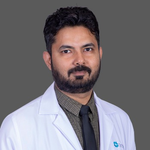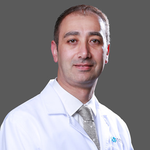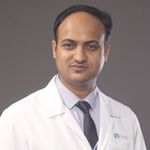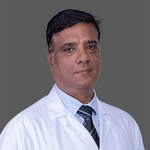













Heart-related problems do not always require surgery. Sometimes they can be addressed with lifestyle changes, medications, or nonsurgical procedures. For example, catheter ablation uses energy to make small scars in your heart tissue to prevent abnormal electrical signals from moving through your heart. Coronary angioplasty is a minimally invasive procedure in which a stent is inserted into a narrowed or blocked coronary artery to hold it open. Nonetheless, surgery is often needed to address problems such as heart failure, plaque buildup that partially or totally blocks blood flow in a coronary artery, faulty heart valves, dilated or diseased major blood vessels (such as the aorta), and abnormal heart rhythms.
What are some types of heart surgery?
There are many types of heart surgery. The National Heart, Lung, and Blood Institute, which is part of the National Institutes of Health, lists the following as among the most common coronary surgical procedures.
In addition to these surgeries, a minimally invasive alternative to open-heart surgery that is becoming more common is transcatheter structural heart surgery. This involves guiding a long, thin, flexible tube called a catheter to your heart through blood vessels that can be accessed from the groin, thigh, abdomen, chest, neck, or collarbone. A small incision is necessary. This type of surgery includes transcatheter aortic valve implantation to replace a faulty aortic valve with a valve made from animal tissue, MitraClip® placement for mitral valve abnormalities, and WATCHMAN® placement for nonvalvular atrial fibrillation patients.
What procedures are available at NMC Specialty Hospital, Dubai?
How many medical staff are there at NMC Specialty Hospital, Dubai and what accreditations do they have?
Heart surgery is any type of surgery performed to correct problems with the heart if other treatments cannot be used or have not worked. It can be done for both children and adults. Numerous problems can be addressed with heart surgery, including amyloidosis, arrhythmia, cardiomyopathy, aortic disease, coronary artery disease, heart failure, hypertrophic cardiomyopathy, congenital heart disease, vulvar heart disease, and pericarditis.
Your doctor may use heart surgery to:
Replace or repair heart valves that don't work well
Treat heart failure and coronary heart disease (CHD)
Place medical devices to help support heart function
Control abnormal heart rhythms
Replace a damaged heart with a healthy one from a donor.
The recuperation duration, a vital part of the Heart Surgery, can alter based on factors like the patient's age, overall health, and the kind of operation they underwent. The time to heal can differ, contingent on the nature of your cardiac operation and the surgical method employed. Your medical practitioner will inform you when you can recommence your routine activities. Complete recovery may necessitate anywhere from 6 to 12 weeks or even longer. Typically, open-heart procedures necessitate an extended recuperation duration.
Throughout this healing phase, it's suggested for patients to slowly augment their physical exertion while simultaneously adhering to a cardiac-friendly diet. It's absolutely imperative for patients to show up for frequent follow-up check-ups to track their progress, tweak medications if required, and to immediately address any possible issues or complications.
The effectiveness of a Heart Surgery within Dubai commonly relies on multiple factors, such as the patient's health prior to the surgery, the nature and intricacy of the cardiac ailment, and the surgeon's skill level. It is crucial to understand that success is gauged not merely by the immediate results post-procedure, but also by long-term survival, enhancement of life quality, and alleviation of symptoms.
Heart surgeries frequently yield outstanding outcomes and are generally considered safe. Patients need to bear in mind that the procedure is typically part of a comprehensive treatment strategy. Ongoing medication, a balanced diet, consistent physical activity, and lifestyle changes are all fundamental to maintaining the long-term benefits and success of the surgery. Regular health screenings and discussions with your physician are also critical to monitor improvement and identify any potential issues early on.




















Heart-related problems do not always require surgery. Sometimes they can be addressed with lifestyle changes, medications, or nonsurgical procedures. For example, catheter ablation uses energy to make small scars in your heart tissue to prevent abnormal electrical signals from moving through your heart. Coronary angioplasty is a minimally invasive procedure in which a stent is inserted into a narrowed or blocked coronary artery to hold it open. Nonetheless, surgery is often needed to address problems such as heart failure, plaque buildup that partially or totally blocks blood flow in a coronary artery, faulty heart valves, dilated or diseased major blood vessels (such as the aorta), and abnormal heart rhythms.
What are some types of heart surgery?
There are many types of heart surgery. The National Heart, Lung, and Blood Institute, which is part of the National Institutes of Health, lists the following as among the most common coronary surgical procedures.
In addition to these surgeries, a minimally invasive alternative to open-heart surgery that is becoming more common is transcatheter structural heart surgery. This involves guiding a long, thin, flexible tube called a catheter to your heart through blood vessels that can be accessed from the groin, thigh, abdomen, chest, neck, or collarbone. A small incision is necessary. This type of surgery includes transcatheter aortic valve implantation to replace a faulty aortic valve with a valve made from animal tissue, MitraClip® placement for mitral valve abnormalities, and WATCHMAN® placement for nonvalvular atrial fibrillation patients.
What procedures are available at NMC Specialty Hospital, Dubai?
How many medical staff are there at NMC Specialty Hospital, Dubai and what accreditations do they have?












Heart-related problems do not always require surgery. Sometimes they can be addressed with lifestyle changes, medications, or nonsurgical procedures. For example, catheter ablation uses energy to make small scars in your heart tissue to prevent abnormal electrical signals from moving through your heart. Coronary angioplasty is a minimally invasive procedure in which a stent is inserted into a narrowed or blocked coronary artery to hold it open. Nonetheless, surgery is often needed to address problems such as heart failure, plaque buildup that partially or totally blocks blood flow in a coronary artery, faulty heart valves, dilated or diseased major blood vessels (such as the aorta), and abnormal heart rhythms.
What are some types of heart surgery?
There are many types of heart surgery. The National Heart, Lung, and Blood Institute, which is part of the National Institutes of Health, lists the following as among the most common coronary surgical procedures.
In addition to these surgeries, a minimally invasive alternative to open-heart surgery that is becoming more common is transcatheter structural heart surgery. This involves guiding a long, thin, flexible tube called a catheter to your heart through blood vessels that can be accessed from the groin, thigh, abdomen, chest, neck, or collarbone. A small incision is necessary. This type of surgery includes transcatheter aortic valve implantation to replace a faulty aortic valve with a valve made from animal tissue, MitraClip® placement for mitral valve abnormalities, and WATCHMAN® placement for nonvalvular atrial fibrillation patients.
What procedures are available at NMC Specialty Hospital, Dubai?
How many medical staff are there at NMC Specialty Hospital, Dubai and what accreditations do they have?
CONTACT SUCCESSFUL